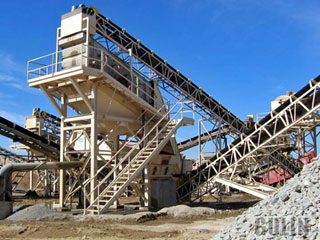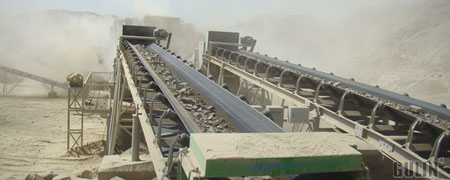With landfill space dwindling, locating a cost-effective approach to get rid of the mountain of asphalt and concrete waste it generated annually provided the chance for Perrin Asphalt and Concrete to grow its business.

Asphalt recycling equipment
Gulin® launched asphalt concrete Crushing, a concrete and asphalt recycling business, which now recycles 100% with the concrete and asphalt extracted from asphalt quarry work sites.
Us also provides concrete and asphalt recycling services with other contractors. Having its portable crushing unit from Gulin Crushing can recycle concrete and asphalt on-site or accept clean material at its dumpsite in Akron, Ohio.
The organization uses the reclaimed concrete and asphalt to create 304 ODOT spec recycled aggregate to suit the LEED Green Building Rating System to use of post-consumer recycled material. The recycled aggregate can be obtained to contractors for pick-up or delivery.
As well as solving the landfill space issue and providing a natural construction material, while using recycled concrete and asphalt aggregate for construction applications cuts down on expense of stone base up to 40% in contrast to Gulin stone base.
Asphalt recycling processing
Recovered materials are thrown away resulting in loss of aggregates and bitumen. Materials are crushed by crushing machine and reused as a gravel substitute, which results in loss of bitumen. On site recycling is possible under restricted circumstances; however this needs special machinery and can be problematic in practice. Recovered materials can be crushed and reused as aggregate in sand plants.
The latter solution has gained worldwide acceptance and is the most widely used technique: The process of recycling in asphalt plants is well proven and a number of alternatives are available related to the desired amount of recycled material in the mix. The quality of a mix that incorporates recycled materials has been proven to be as good as 100% new mix and meets the same standards. With experience based on more that 800 recycled asphalt installations worldwide.
Asphalt production with the addition on cold recycled materials: This solution can be considered as a start up system, requiring low investment costs. It restricts the maximum amount of recycled material to approximately 25% of the new mix. The main component of such a system consists of a cold feeder, a weighing device and a steam evacuation system.
Asphalt production with the addition of warm recycled materials: This solution involves higher investment costs but allows the reuse of approximately 50% recycled materials in the mix. The main components of this type of system consist of a cold feeder, a recycling drum (parallel drum), a weighing device and an exhaust gas system.

Asphalt recycling in the world
First launched in February 2004, the scheme has already attracted applications for recycling plant. The annual production of asphalt represents a large proportion of national wealth. It is therefore in everyone‘s interest to maintain connecting infrastructure and preserve its value. Preservation is usually achieved by repairing or replacing damaged areas with new asphalt, while the used asphalt gained as a result of these repairs is often disposed of or used as a supporting layer in road building. Both cases result in a loss of value and loss of resources.
The Netherlands can be considered with the country with the most recycling expertise; this can be explained by the fact that The Netherlands does not possess its own aggregates and therefore has to import them. France is about to start up recycling production and Germany and Switzerland have already installed a significant number of asphalt plants with good recycling facilities and the amount of recycling in these countries has increased over the last few years. By comparison, as a strong aggregate supplier, the UK has not had the same incentive to recycle but in future the amount of recycling will certainly increase, accelerated by rising oil prices.
The UK market is not yet an asphalt recycling market, but the first steps have been taken and the amount of recycling will increase in the future. Oil prices will also have an effect on recycling. The asphalt producing industry and the authorities must find solutions and incentives for using recycling techniques and establish better acceptance of mixes that include recycled materials.

